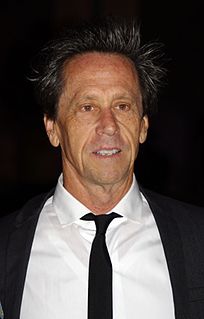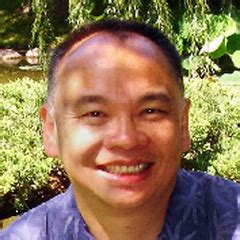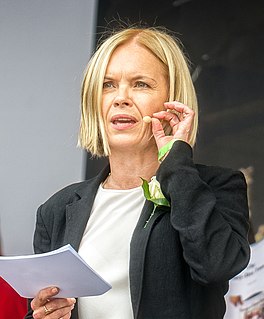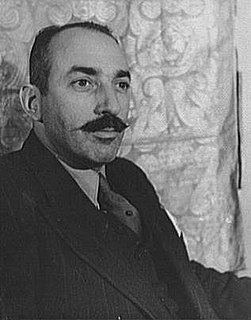A Quote by Brian Grazer
Technology has brought us further than man could ever imagine, and it makes all information available. But it might not do the same exact thing that one human being asking another human being might do.
Related Quotes
I believe in recognizing every human being as a human being--neither white, black, brown, or red; and when you are dealing with humanity as a family there's no question of integration or intermarriage. It's just one human being marrying another human being or one human being living around and with another human being.
Every human being lived behind an impenetrable wall of choking mist within which no other but he existed. Occasionally there were the dim signals from deep within the cavern in which another man was located so that each might grope toward the other. Yet because they did not know one another, and could not understand one another, and dared not trust one another, and felt from infancy the terrors and insecurity of that ultimate isolation there was the hunted fear of man for man, the savage rapacity of man toward man.
When I look at the human brain I'm still in awe of it. Every single time you lift off the bone and open the durra and there it is - the human brain, the thing that gives a person a personality, that distinguishes each one of us, that there could be more than 6 billion of us here on this planet with brains that look the same, but each one being distinctly different because of what is going on in that thing. I'll never get over my awe of that.
When you meet another human being, you meet the physical self, then you meet the psychological self that's behind it, which is their mental conditioning, their patterns of behavior and so on. And then, there is a deeper level to every human being that transcends all of that. I can only sense that in another human being and relate to another human being on that deeper level if I have gone deep enough within myself.
It all stems from the same thing - which is that when we are face to face - and this is what I think is so ironic about Facebook being called Facebook, because we are not face to face on Facebook ... when we are face to face, we are inhibited by the presence of the other. We are inhibited from aggression by the presence of another face, another person. We're aware that we're with a human being. On the Internet, we are disinhibited from taking into full account that we are in the presence of another human being.
Everything we know has its origin in questions. Questions, we might say, are the principal intellectual instruments available to human beings. Then how is it possible that no more than one in one hundred students has ever been exposed to an extended and systematic study of the art and science of question-asking? How come Alan Bloom did not mention this, or E. D. Hirsh, Jr., or so many others who have written books on how to improve our schools? Did they simply fail to notice that the principal intellectual instrument available to human beings is not examined in school?
Looking at the world today, we might easily forget that the main purpose of our life - you could call it the heart of being human - is to be happy. All of us share the same wish, and the same right, to seek happiness and avoid suffering. Even following a spiritual path, or the religious life, is a quest for happiness.
If a human being dreams a great dream, dares to love somebody; if a human being dares to be Martin King, or Mahatma Gandhi, or Mother Theresa, or Malcolm X; if a human being dares to be bigger than the condition into which she or he was born-it means so can you. And so you can try to stretch, stretch, stretch yourself so you can internalize, 'Homo sum, humani nil a me alienum puto. I am a human being, nothing human can be alien to me.' That's one thing I'm learning.



































